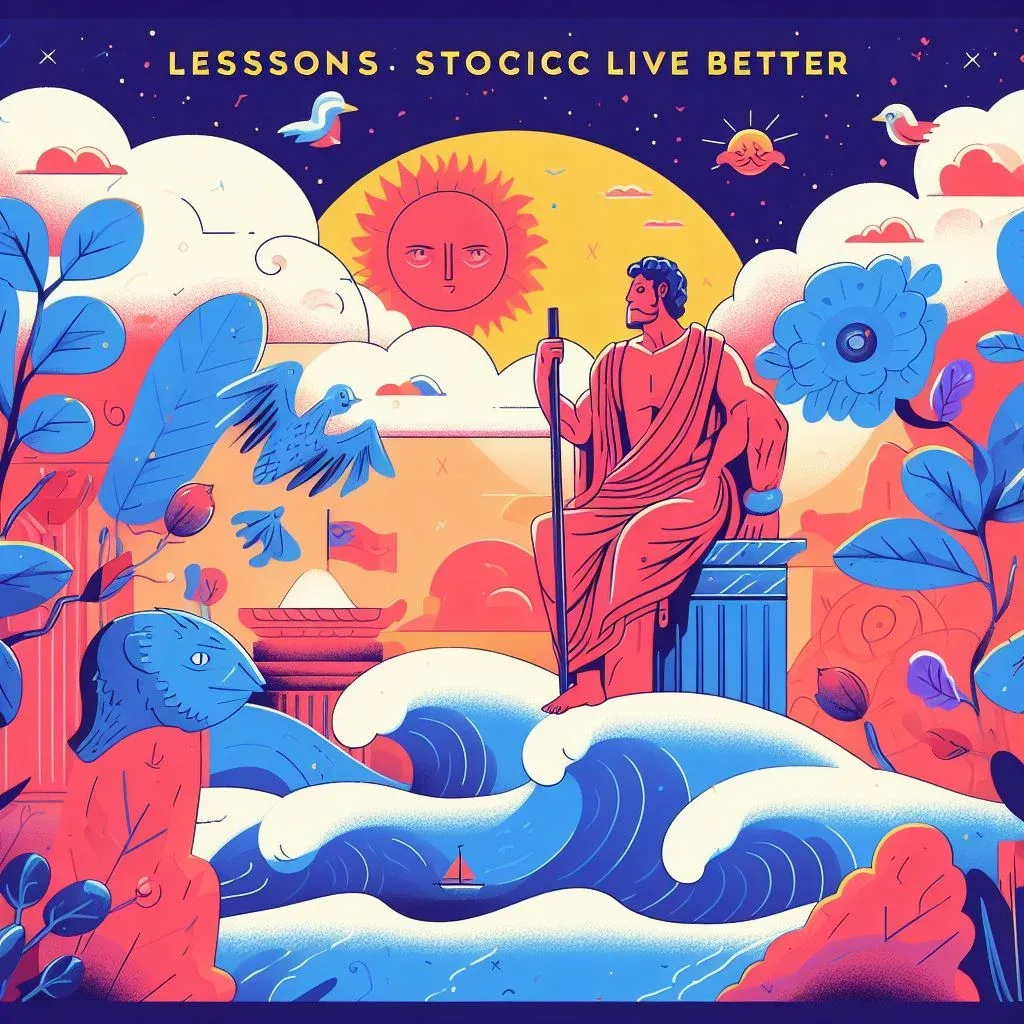Stoicism is an ancient philosophy that continues to be a rich source of wisdom for those seeking a meaningful and resilient life. The Stoics, such as Seneca, Epictetus, and Marcus Aurelius, developed principles and practices that are as relevant today as they were in antiquity. In this article, we will explore the seven best lessons of Stoicism, highlighting how these teachings can enrich our lives and help us face the challenges of the modern world.

1. Internal Control over External
One of the fundamental lessons of Stoicism is the recognition that we have no control over many external circumstances. However, we have control over our reactions and attitudes towards these circumstances. The Stoics teach us to direct our attention and energy toward what we can control: our own thoughts, emotions, and actions. By doing so, we can achieve a greater sense of peace and serenity, regardless of the turmoil of the outside world.
2. Serene Acceptance of Reality
Acceptance of reality is another central lesson of Stoicism. The Stoics remind us that resistance to reality is futile and causes suffering. Instead, we are encouraged to embrace the impermanent nature of life and face adversity with calm and resignation. This calm acceptance not only helps us deal with suffering, but also allows us to more fully appreciate moments of joy and gratitude.
3. Emotional Resilience
The Stoics believed in the importance of emotional control. They teach us not to be slaves to our emotions, but to master them. This does not mean suppressing emotions, but rather developing the ability to respond in a balanced and considered way to situations. The emotional resilience cultivated by stoicism helps us face challenges calmly and make ethical decisions, regardless of momentary emotions.
4. Pursuit of Virtue
For the Stoics, virtue was the supreme good. They remind us that the pursuit of virtue should be the primary concern in our lives. This involves practicing ethical behaviors, such as justice, courage, wisdom and moderation. The pursuit of virtue helps us live in accordance with our principles and values, contributing to a meaningful and morally just life.
5. Self-knowledge and Reflection
Stoicism emphasizes the importance of self-knowledge and self-reflection. The Stoics invite us to examine our own thoughts, actions, and personal values. This process of self-assessment helps us understand our strengths and weaknesses, allowing us to grow and evolve as individuals.
6. Valuing Time
The Stoics remind us of the precious nature of time. They argue that procrastination and distraction are wastes of time that we should avoid. Instead, we are encouraged to value the present and to seize each moment to pursue virtue and excellence.
7. Understanding Death
Stoicism also addresses understanding death. The Stoics remind us that death is a natural part of life and that we should not fear it. By accepting the inevitability of death, we are encouraged to live with a sense of urgency, making the most of every day we have.
In short, the lessons of Stoicism offer valuable guidance for a virtuous and resilient life. These teachings invite us to develop internal control, serenely accept reality, cultivate emotional resilience, seek virtue, practice self-knowledge, value time and understand death. By incorporating these lessons into our lives, we can find a path to a more meaningful, ethical and balanced existence, facing challenges with wisdom and serenity. Stoicism continues to be a valuable philosophy that helps us find answers to life's fundamental questions.




